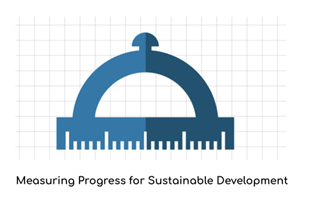
Committing to Collective Action: Measuring Progress for Sustainable Development
Sponsoring Organization
Global Data Barometer
Organization
Civil Society
Supporting Organization(s)
Data Type
Official statistics
Administrative data
Artificial Intelligence
Civil registration and vital statistics
Census
Cross cutting
Region
Global
Objective
Promote collaboration among institutions measuring the data capacity of countries to support greater tool efficiency and complementarity. This will improve the evidence available to country authorities responsible for improving data systems.
What problem is this commitment aiming to solve?
The adoption of the 2030 Agenda signifies a pivotal moment in global development, emphasizing the crucial role of data in achieving the Sustainable Development Goals (SDGs). However, to realize the value of data and data-related projects in achieving the SDGs, we need to understand a country’s data capacity to know what more is needed to develop the robust data systems necessary to achieve their goals. However, despite the presence of several benchmarking exercises attempting to measure the state of public data across a variety of fields, the civil society organizations conducting these independent global assessments face significant challenges.
There is very little collaboration among these organizations, creating silos and a lack of coordination within the data for development space. Accordingly, there is an urgent need to foster collaboration among these global measurement activities to drive a more integrated view of the state of data for sustainable development on a country-by-country basis that is necessary to drive government improvement plans. Greater collaboration would increase tool complementarity and support greater efficiency of resource allocation which is needed to both support individual countries, as well as multilateral organizations, to measure, monitor, and achieve the SDGs on a global scale.
Briefly describe the commitment including key activities, strategies and intended outcomes.
Over the last few years, several initiatives have been launched to measure global progress in data openness and governance. Notable examples include the Open Data Inventory (Open Data Watch, 2020), the Global Open Data Index (Open Knowledge Foundation, 2019), the Open Data Barometer (Web Foundation, 2018), and the Open Government Data Index (OGDI pilot) from the e-Government Development Index (EDGI). In 2022, a new benchmark emerged with the launch of the Global Data Barometer (GDB). The GDB is a multi-dimensional index that assesses the use of data for public good, providing crucial insights into how data is being utilized to advance development globally. In June 2024, another significant milestone was achieved with the publication of the first edition of the Global Responsible AI Index which highlights data used to support AI development.
The 2022 stocktaking report by Open Data Watch, supported by IDRC and D4D.net, strongly recommended increased collaboration among measurement tools via continuous dialogue and the establishment of a collaborative mechanism. This would facilitate a more integrated approach to the ongoing development of tools and ensure the efficient use of resources for their implementation and sustainability. The report advocates for a data collaborative that includes tool and index producers, users, and the intended beneficiaries, dedicated to improving the measurement of data systems.
This commitment will promote collaboration among institutions engaged in measuring the data capacity of countries to support greater tool efficiency and complementarity. This will improve the evidence available to country authorities responsible for improving data systems. By leveraging synergies, shared resources, and expertise, existing and future measurement initiatives will not only enhance their individual outputs but will also contribute significantly to improving data capacity and use by countries striving to meet the Sustainable Development Goals.
Describe how you will monitor progress and evaluate the success of this commitment?
● Mapping of measurement tools and practices
● Development of Terms of Reference for new measurement data collaborative
● Number of organizations/measurement tools formally engaged in a new data collaborative
● Establishment of a virtual platform for ongoing dialogue and collaboration/exchange of lessons learned
● Calendar of events/workshops to address gaps and inefficiencies across tools
Timeline
2024-2025
Contact Person
Silvana Fumega
silvana@globaldatabarometer.org
